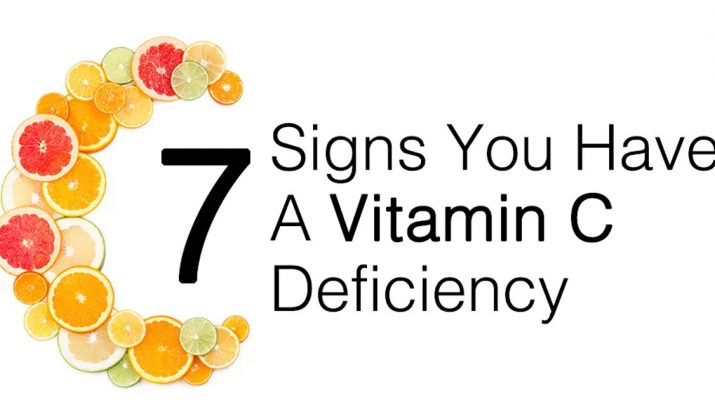Vitamin C is one of the safest and most effective nutrients, experts say…the benefits of vitamin C may include protection against immune system deficiencies, cardiovascular disease, prenatal health problems, eye disease, and even skin wrinkling. – WebMD
Vitamin C is one of the most important nutrients for our overall health. This is particularly true in the prevention of many common and serious health conditions including cancer, stroke, cardiovascular illness and vision disorders. Further, vitamin C is vital to the function of a healthy immune system.
As with many nutrients, a significant part of the population does not consume an adequate amount of this important vitamin. This is partially due to the fact that many health organizations recommend ingesting an amount of vitamin C that is not optimal – something that diminishes the myriad health benefits of the vitamin.
When we don’t consume enough vitamin C, both physical and mental symptoms can manifest. Additionally, we are more susceptive to chronic and acute illnesses. Therefore, it is important to monitor our intake of this important nutrient.
We’ll discuss seven different signs of vitamin C deficiency, and make some recommendations on how to ensure an appropriate amount is ingested on a daily basis.
Here Are 7 Signs Of A Vitamin C Deficiency:
1. Elevated And More Frequent Stress
Most of us have our daily stress triggers, although deficient levels of vitamin C can exacerbate these triggers – both in frequency and in degree. In a study conducted at the Vanderbilt University Medical Center, mice that were deprived of Vitamin C displayed behavioral patterns that mirrored depression. The mice subjects also exhibited less vigor, a symptom that likely correlates with fatigue – another negative side effect of a low vitamin C levels in the body.
2. Lower Energy Levels
As previously mentioned, fatigue is a common symptom of vitamin C deficiency. Numerous scientific articles have been published that directly link low vitamin C levels to fatigue and exhaustion. In a study of 81 people, fatigability tests were taken of participants who ingested more than 400 milligrams of vitamin C and those who ingested less than 100 milligrams. The former group’s “exhaustion index,” a numerical measure of fatigue levels, was less than half of that of the deficient group.
3. Unhealthy Teeth And Gums
Regularly ingesting adequate amounts of vitamin C contributes to healthier teeth and gums. Conversely, vitamin C deficiency can cause the erosion of the gums and loosening of teeth. Vitamin C is particularly important to gum health, as the nutrient strengthens the lining of the epithelium – a barrier that prevents bacteria from penetrating the gum line. It is common for those with periodontal problems to test for low levels of the vitamin.
4. Inhibited Immune System
When levels of vitamin C are low, the body’s immune system functions are handicapped. In addition to more become sick more often, a vitamin C deficiency slows the healing process of wounds. The immune system’s effectiveness in fighting off infections is also impaired. Vitamin C also works independently and in cohort with other macronutrients to strengthen the immune system.
5. Weakness In The Body
Anemia is the most common blood condition in the United States, affecting approximately 3.5 million Americans. One common symptom of anemia is body weakness, caused by low levels of healthy blood cells or hemoglobin. When our blood doesn’t produce enough of either, our organs do not get indispensable nutritional supplementation to function properly. Vitamin C deficiency anemia is the actual condition that can manifest with inadequate amounts of vitamin C, according to the Mayo Clinic.
6. Unhealthy Skin
Vitamin C is a potent antioxidant that plays an important role in the maintenance of the body’s connective tissue. In addition to the vitamin’s antioxidant properties, vitamin C plays an important role in collagen synthesis, making it a vital component for skin health. Also, vitamin C may aid in the prevention of UV-causing skin damage. Without regular levels of vitamin C, the skins appearance is often negatively affected. These effects can include discoloration and wrinkling.
7. Poor Eye Health
According to the American Optometric Association, evidence exists that vitamin C can help lower the risk of developing cataracts. Vitamin C produces many of its vision benefits by supporting the health of blood vessels in the eye. Studies also exist which correlate reduced risk of age-related macular degeneration to adequate intake of vitamin C.
Fortunately, there are numerous sources of vitamin C. Citrus fruits, including oranges, lemons, limes and grapefruit, contain the highest levels of vitamin C. Many people choose to get their vitamin C by drinking orange juice or grapefruit juice, which are perfectly acceptable sources. Spinach, tomatoes, bananas, apples and peaches are also good sources of the vitamin. Vitamin C supplements are available to account for dietary gaps of vitamin C, although this should not be considered an ideal source.
It is also important to consume enough vitamin C every day. The U.S. Food and Drug Administration (FDA) recommends that men get a minimum of 90 mg of vitamin C daily, and that women get a minimum of 75 mg.
To experience optimal health outcomes, it is necessary to exceed the FDA’s recommendation. Sufficient intake levels of vitamin C is very dependent upon individual health. Smokers, alcoholics, diabetics, older adults, pregnant women and those with chronic diseases should take in more vitamin C, as should those with chronic stress and/or fatigue. Recommended intake amounts for these individuals vary, but 400 to 500 milligrams daily is a commonly-cited recommendation.


